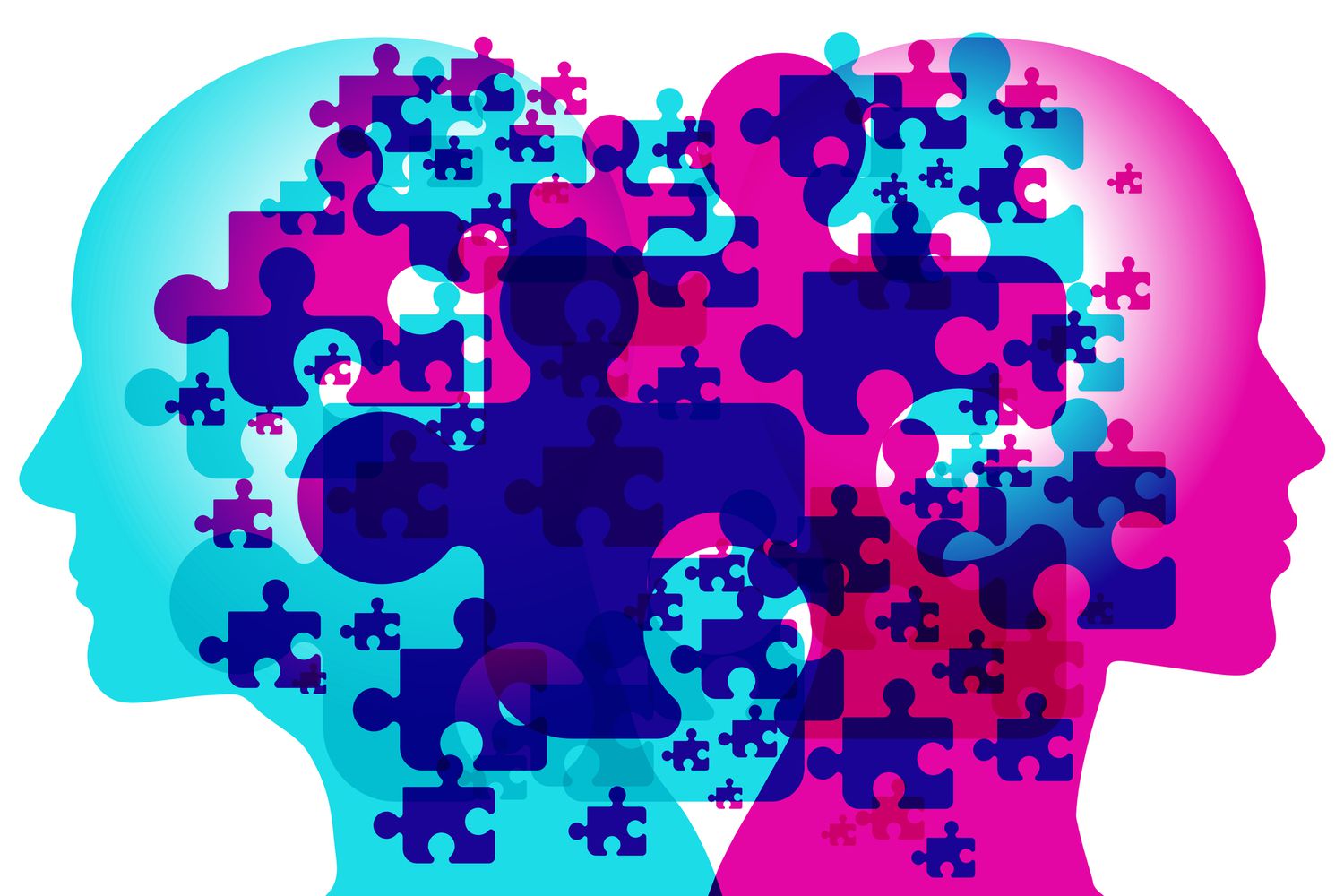The psychodynamic approach in psychology is a product of both nature and nurture. While it recognizes the role of innate traits, such as temperament and predispositions, it equally emphasizes the profound impact of environmental experiences, especially in early childhood. Prominent figures like Sigmund Freud and Erik Erikson have highlighted the interplay between one’s genetic makeup and the social, familial, and cultural contexts in shaping personality and behavior. This approach underscores that our psychological development is a complex result of inherited tendencies and the nurturing environment we encounter.
What Is The Psychodynamic Approach In Psychology?

The psychodynamic approach in psychology is a theory and framework that focuses on understanding human behavior, thoughts, and emotions through the lens of unconscious processes and the interplay of various psychological forces. This approach was initially developed by Sigmund Freud, and it has been expanded upon by other notable psychologists such as Erik Erikson and Carl Jung.
Core Concepts And Principles Of The Psychodynamic Approach
Unconscious Mind
The psychodynamic approach emphasizes the role of the unconscious mind, suggesting that many of our thoughts, feelings, and behaviors are influenced by hidden, often repressed, psychological processes.
Psychic Determinism
This concept posits that there are underlying reasons or motives for all human actions, even if they are not immediately apparent. In other words, nothing happens by chance; all actions have a cause.
Conflict and Defense Mechanisms
The approach highlights the idea that internal conflicts within the mind can lead to psychological distress. To cope with these conflicts, individuals may employ defense mechanisms, such as repression, denial, or projection.
Early Childhood Experiences
The psychodynamic approach emphasizes the significance of early childhood experiences, particularly the parent-child relationship and family dynamics, in shaping an individual’s personality and behavior.
Stages of Development
Some psychodynamic theories, like Erik Erikson’s psychosocial theory, propose that individuals go through various stages of development, each with unique challenges and conflicts that influence their growth and personality.
Therapy and Exploration
Psychodynamic therapy, or psychoanalysis, is a method based on this approach. It involves exploring unconscious thoughts and emotions to gain insight into the root causes of psychological issues.
Nature vs. Nurture in Psychology
The nature vs. nurture debate has a long history in psychology, dating back to the late 19th century when psychology emerged as a formal scientific discipline.
Nature (Genetics and Inherent Traits)
Nature refers to the influence of genetics and inherent traits on an individual’s development and characteristics. It emphasizes the role of hereditary factors, such as genes and biological predispositions.
These genetic factors can influence a wide range of traits and abilities, including physical characteristics (like height, eye color, or susceptibility to certain diseases), personality traits, intelligence, and even some behavioral tendencies.
Essentially, it suggests that many of an individual’s traits are predetermined or hardwired from birth.
Nurture (Environmental Influences)
Nurture encompasses the impact of the environment, including upbringing, culture, social interactions, and life experiences, on an individual’s development and traits.
It highlights the idea that external factors play a significant role in shaping who we become. Environmental influences can include parenting styles, peer relationships, cultural background, socioeconomic status, education, and exposure to various life events.
These experiences can mold an individual’s personality, beliefs, skills, and behavior.
The Significance of the Nature vs. Nurture Debate
The nature vs. nurture debate is significant in psychology for several reasons
Understanding Human Development: It helps psychologists and researchers understand the complex interplay between genetic predispositions and environmental factors in human development. This knowledge is crucial for comprehending how people grow, learn, and adapt throughout their lives.
Informing Treatment and Intervention: The debate has implications for various fields, including clinical psychology and education. Knowing the relative contributions of nature and nurture can inform treatment strategies, intervention programs, and educational approaches. For instance, understanding that certain behaviors have a strong genetic component might lead to different therapeutic approaches.
Ethical and Social Implications: The debate has ethical and social implications. It can influence debates on issues like responsibility for criminal behavior, the role of genetics in mental health disorders, and the impact of socioeconomic disparities on development.
Nature-Nurture Interaction: The debate has evolved to recognize that it’s often not a matter of nature OR nurture but rather nature AND nurture. There’s increasing awareness that genes can influence how individuals respond to their environments, and environmental experiences can affect gene expression. This interaction is known as gene-environment interplay and is a critical focus of contemporary research.
What Is The Role of Nurture in the Psychodynamic Approach?
In the psychodynamic approach to psychology, nurture plays a significant role in understanding an individual’s development and behavior.
Emphasis on Early Life Experiences
Unconscious Influences
Psychodynamic theory suggests that many of our thoughts, emotions, and behaviors are shaped by unconscious processes.
Early life experiences, particularly those that occur in childhood, are believed to be critical in shaping the unconscious mind. Traumatic or emotionally charged events from the past can have a lasting impact on an individual’s psyche and influence their behavior later in life.
Developmental Stages
Freud proposed a psychosexual development theory, which focuses on the importance of early childhood experiences in the formation of an individual’s personality.
The way individuals navigate through these developmental stages and resolve conflicts at each stage can have a lasting impact on their personality and behavior.
Parental Relationships
The relationships children have with their parents or primary caregivers are of paramount importance in the psychodynamic approach.
The quality of these relationships, including the level of nurturing and care received during childhood, can influence the development of attachment styles, self-esteem, and interpersonal relationships in adulthood.
Family Dynamics and Social Environment
Family as a Microcosm
Psychodynamic theorists often view the family as a microcosm of the individual’s social environment. Family dynamics, such as sibling relationships and the roles family members play, can be seen as a reflection of broader social dynamics.
Transference and Countertransference
In therapy, psychodynamic therapists pay close attention to the transference and countertransference processes.
Transference refers to how patients may transfer feelings and attitudes from significant relationships in their past onto the therapist, revealing unresolved issues from their nurturing relationships.
Countertransference occurs when the therapist’s emotions and reactions are influenced by their own experiences, highlighting the importance of the therapist’s own nurturing experiences.
The Impact of Nurturing Relationships
Attachment Theory
Psychodynamic theory is closely related to attachment theory, which emphasizes the significance of early nurturing relationships in shaping an individual’s emotional development.
Secure attachment to caregivers during infancy is believed to lead to more positive psychological outcomes in adulthood, while insecure or disrupted attachment can result in emotional difficulties.
Therapeutic Process
In psychodynamic therapy, the therapeutic relationship itself is seen as a nurturing and reparative experience.
The therapist’s role is to provide a safe, empathetic, and non-judgmental environment that allows the patient to explore and work through unresolved issues and conflicts from their early life experiences.
What Is The Role of Nature in the Psychodynamic Approach?

In the psychodynamic approach to psychology, the role of nature, specifically inherited tendencies and predispositions, is less emphasized compared to other approaches like behaviorism or biological psychology.
Inherited Tendencies and Predispositions
Temperament
While the psychodynamic approach primarily focuses on the influence of early life experiences and the unconscious mind, it acknowledges that individuals may have inherent temperamental traits.
For example, some people may be born with a temperament that predisposes them to be more introverted or extroverted, which can influence their personality and interpersonal style.
Defense Mechanisms
Psychodynamic theory suggests that defense mechanisms are used by the ego to protect the individual from anxiety and distress. The specific defense mechanisms that people employ may have a genetic component.
For instance, some individuals might be more predisposed to using mechanisms like repression or denial, which can be influenced by their innate psychological makeup.
How Genetics Play a Role
In some cases, certain genetic factors may contribute to the development of psychopathological conditions.
While psychodynamic theory does not focus on the genetic underpinnings of disorders to the same extent as biological psychology, it acknowledges that some mental health conditions have a genetic component.
For example, the predisposition to conditions like schizophrenia or bipolar disorder can be influenced by genetic factors.
The Interplay of Nature and Nurture
Complex Interactions
The psychodynamic approach, like many contemporary psychological perspectives, recognizes that nature and nurture interact in complex ways.
In this view, inherited tendencies and predispositions interact with early life experiences and nurturing relationships to shape an individual’s development and behavior.
Individual Differences
Psychodynamic theorists may consider how an individual’s inherent temperament or genetic predispositions interact with their early experiences.
For example, a person with a predisposition toward introversion may respond differently to nurturing or traumatic experiences compared to someone with a predisposition toward extroversion.
Epigenetics
The field of epigenetics explores how environmental factors can influence gene expression. Psychodynamic theorists might consider how early nurturing or traumatic experiences can lead to epigenetic changes that impact an individual’s psychological functioning and behavior.
FAQ
What is the psychodynamic approach to human nature?
The psychodynamic approach to human nature views individuals as being influenced by unconscious processes, early life experiences, and interpersonal relationships. It emphasizes that behavior and personality are shaped by these factors.
What is the nature of psychodynamic therapy?
Psychodynamic therapy is a form of talk therapy that delves into unconscious conflicts, early experiences, and the therapeutic relationship. It aims to uncover and resolve underlying emotional and psychological issues.
What type of approach is psychodynamic?
The psychodynamic approach is a psychological approach that explores how unconscious processes, early life experiences, and interpersonal relationships influence an individual’s psychology and behavior.
What approach is psychodynamic?
The psychodynamic approach is a dynamic and comprehensive perspective in psychology that focuses on understanding the unconscious mind, early life experiences, and the impact of nurturing relationships on an individual’s development and behavior.
What are the 3 elements of psychodynamic theory?
The three key elements of psychodynamic theory are the id, ego, and superego. These components represent different aspects of an individual’s psyche, including basic instincts, rationality, and moral standards.
What is another name for the psychodynamic approach?
Another name for the psychodynamic approach is psychoanalytic psychology, as it is heavily influenced by the work of Sigmund Freud and his psychoanalytic theories.
Who uses the psychodynamic approach?
Psychodynamic approaches are used by clinical psychologists, psychotherapists, and counselors to treat various psychological issues, particularly those related to unconscious conflicts and unresolved early life experiences.
What is the primary aim of psychodynamic approaches?
The primary aim of psychodynamic approaches, including psychodynamic therapy, is to uncover and address unconscious conflicts and unresolved issues that may be contributing to an individual’s psychological distress or maladaptive behavior.
What techniques are used in psychodynamic therapy?
Psychodynamic therapy employs various techniques, including free association, dream analysis, interpretation of transference and countertransference, and exploration of early life experiences to help individuals gain insight into their unconscious processes and emotional conflicts.
Final words
In conclusion, the psychodynamic approach to psychology isn’t just about nature or nurture; it’s about both. While it primarily focuses on the role of nurture, especially early life experiences and relationships, it also acknowledges that our inherent traits and genetic factors play a part in shaping who we are. It’s like a dance between our genes and the environment we grow up in, with each partner influencing our psychological development and behavior.
So, when it comes to the psychodynamic approach, it’s not a question of “either/or,” but rather a “both/and” situation where nature and nurture work together to create the complex tapestry of our minds and personalities.










